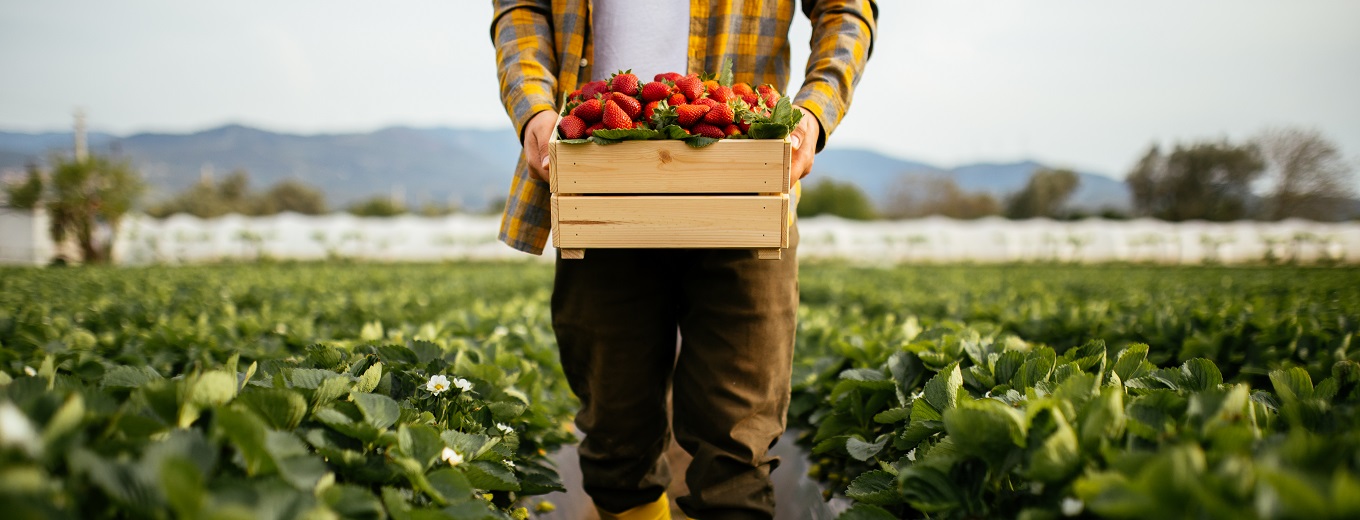The report indicates that progress was made in implementing the EU Bioeconomy Strategy and its action plan, but identifies gaps for future action.
In 2012, the European Commission adopted a Bioeconomy Strategy in line with the objectives of the European Green Deal and updated it in 2018. The Bioeconomy strategy follows five goals: i. ensure food and nutrition security; ii manage natural resources sustainably; iii. reduce dependency on non-renewable, unsustainable resources; iv. mitigate and adapt to climate change; v. strengthen European competitiveness and create jobs.
These objectives are increasingly relevant in the context of the Russian invasion of Ukraine. There is a pressing need to achieve energy independence and reinforce the resilience of food systems to safeguard food security, as presented in a Communication of the European Commission in March 2022. As addressed in the Communication, the aim is to focus on short-term and medium-term actions to enhance food security and support farmers and consumers in the EU in the context of rising food prices and input costs.
The Council of the European Union recognised the importance of the bioeconomy as a significant component for the implementation of the European Green Deal with Council conclusions on the updated Strategy in 2019. In the Conclusions, the European Commission was asked to present a progress report on the implementation of the EU 2018 Bioeconomy Strategy by 2022 and assess if the Strategy and Action Plan need to be updated. In mid-May 2022, the European Commission published the required report.
According to the report, the Bioeconomy includes all sectors and related services and investments that “produce, use, process, distribute or consume biological resources, including ecosystem services”. Consequently, the Bioeconomy Strategy is essential to reach climate neutrality. It contributes to the three dimensions of sustainability: i. the environmental (management of land and biological resources within ecological boundaries), ii. the economic (sustainable value chains and consumption), and iii. the social (social fairness and just transitions).
The published report puts forward that the assessment of the implementation of the EU Bioeconomy Strategy was overall positive. The report shows that actions are in progress to reach the key objectives of the Bioeconomy Strategy: i. the number of national and regional bioeconomy strategies are rising, ii. Central and Eastern European countries accomplished progress in the implementation of national bioeconomy strategies, and iii. increasing private investment and research and innovation in food and other biobased industries were achieved and show promising developments, for example, through the Bio-based Industries Joint-Undertaking (2014-2021) that continues as Circular-Bio-based Europe (CBE) Partnership (2021-2031) and the EU Mission on Soil. The report also considers that a successful deployment of bioeconomy depends significantly on national and regional strategies and takes into account progress that was made. Currently, there are ten EU Member States with dedicated bioeconomy strategies (AT, DE, ES, FI, FR, IE, IT, NL, LV, PT), and seven Member States (CZ, HU, HR, LT, PL, SE, SK) that are developing their strategies. Many EU Member States are also involved in three macro-regional level initiatives: BIOEAST, which brings together eleven member states from Central and Eastern Europe, the Nordic Bioeconomy, and the Bioeconomy initiative of the Baltic Sea Region. Moreover, 28 EU regions have their own strategy, and another region is developing one. Additionally, 69 other EU regions are in progress or have already strategies that encompass bioeconomy as one of the key elements, and 96 other European regions have strategies with a minimum content of bioeconomy.
Nevertheless, the report also shows that the implementation of the Action Plan should have an increased focus on better management of biological resources and sustainable consumption patterns. The future implementation of the Action Plan has to take into account the current crisis in Ukraine and its implication on food and energy prices, but also prices of energy-intensive products and global supply chains.
When it comes to the pressing issue of food and nutrition security, an independent High-Level Expert Group (HLEG) to the European Commission published a report on 14 June 2022 on how to transform food systems by connecting science, policy and society. The report assesses the needs and options to reinforce science-policy interfaces for an enhanced food systems governance. The HLEG indicates that food system transformation is more pressing than ever due to the crisis in Ukraine and that the ongoing food crisis needs to be addressed through connected interfaces in science, policy and society. According to the HLEG’s recommendations, the European Commission, United Nations and other multilateral organisations should include the perspective of food systems in all their investments and activities, linking food producers with processors and consumers, and thus, empowering all relevant stakeholders, diverse voices and geographical regions. For governance organisations, including national governments and regional bodies, the HLEG proposes to work collectively to connect stakeholders across all scales, provide regular multistakeholder dialogues, anticipate trends, set targets, articulate policy options, and debate progress to fuel action at different levels and address trade-offs. For the global community, the existing interfaces of science, policy and society must be strengthened to engage a broader range of voices, integrate data, anticipate trends and set targets and standards.

